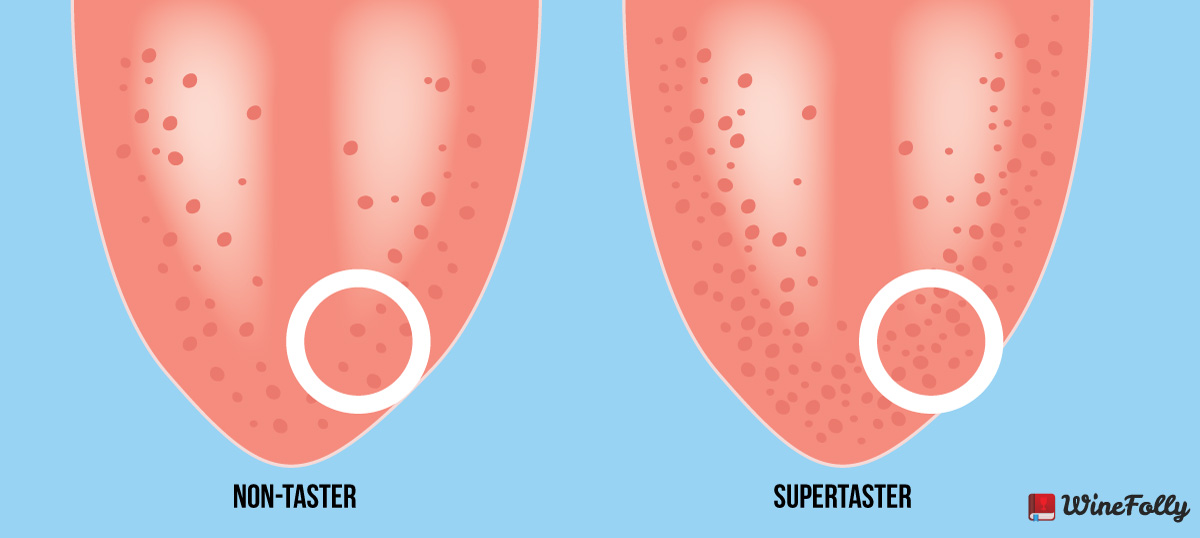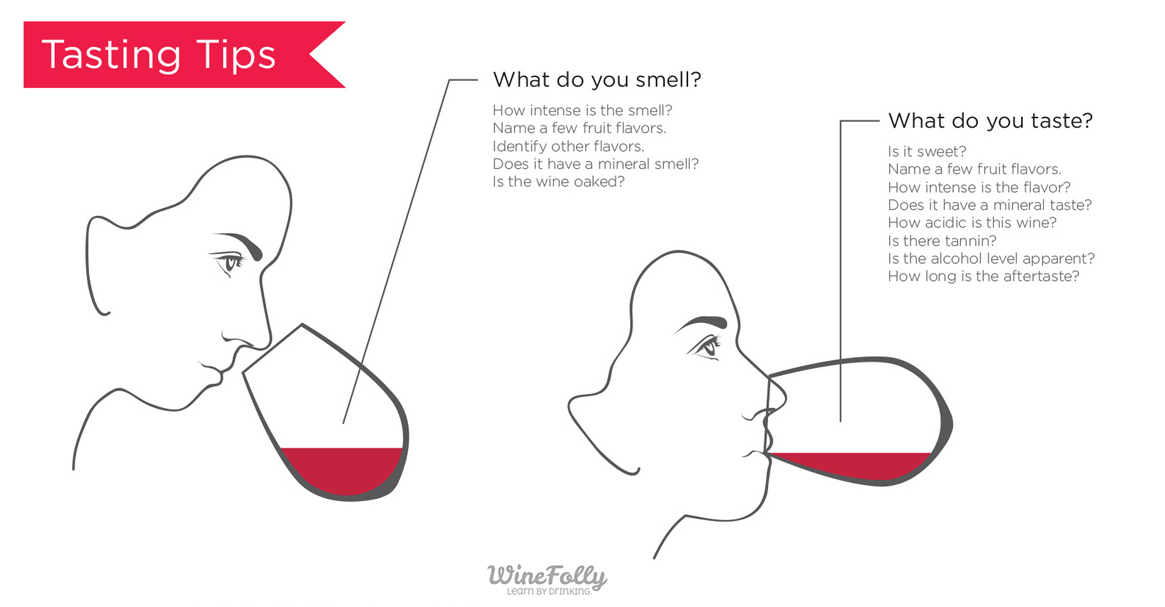Are You a Supertaster With Wine?
If you have more than 30 taste buds in a space the size of a hole punch on your tongue, then you are a supertaster. You also might be a picky eater. Learn what a supertaster is and see if you are one. If you’re not, don’t worry; you can still learn to be great at tasting wine.
There are three types of tasters in the world:
- “supertaster”
- “average taster”
- “non-taster”
A Simple Test to See if You’re a Supertaster
Punch a standard notebook hole in a clean piece of plastic or wax paper and put it on the front part of your tongue. Then, count the bigger taste buds called papillae. They’re pretty tricky to spot, so if you want to be more accurate, drink some red wine beforehand to stain your tongue. Count how many you have, and see below for what kind of taster you are.

Supertaster: 30+ Taste Buds
Everything tastes intense: from salty, sweet, and sour to the sensation of fat and bitter. The classic ’tell’ to a supertaster is someone who hates bitter vegetables such as brussels sprouts or kale. Despite its stupendous-sounding name, being a ‘supertaster’ may actually mean you’re less likely to enjoy bitter drinks, such as bitter beers (like IPA) and high-tannin, full-bodied red wines (you’re more likely a Pinot Noir drinker rather than a Nebbiolo drinker). It also means that you tend to prefer bland foods over super-rich foods that taste too ‘oily’. You may be a picky eater, but being a supertaster is actually pretty good: studies by researcher Linda Bartoshuk at Yale University have shown that supertasters are less likely to be obese than non-tasters — just be sure to eat your leafy greens.
Average Taster: 15-30 Taste Buds
You like bitter vegetables, and you probably enjoy earthy and savory wines. About 50% of people tested in the U.S. were average tasters, so this could be you. An average taster can still taste the same bitter flavors that a supertaster tastes, but they don’t cause you to wince. Because of this, you’re a try-anything taster. Your ability to taste can be improved with a few skills.
Non-Taster: Below 15 Taste Buds
That bowl of spicy Thai food doesn’t make you whimper in pain, and you love high-tannin wines. You tend to lean toward rich, spicy, and intensely flavored foods. You don’t taste bitter the same way others do. In fact, some non-tasters don’t taste bitterness at all. Your experience with food and wine is much different than the other two types of tasters. I bet you’re not surprised that your friends can’t handle what you like to eat. Don’t worry; if you love wine, you can still learn to improve your tasting skills. The only thing you should watch out for is to eat more healthy foods, even if they’re boring.
Regardless of what kind of taster you are, you can become better at tasting wine:
Use your nose: The majority of your sense of taste comes from your nose. Find out how to assess wine’s aromas.
Pay attention to texture: Besides the taste of a food or wine, focus on texture and how a taste evolves in your mouth. Need an example? Check out the taste profile of Cabernet Sauvignon.
Take your time with everything you taste: This will help you develop a better sense of taste. Everyone starts out with around 10,000 taste buds that your body naturally replaces every 2 weeks. As you age, this number goes down to about half. So, no matter who you are, it’s important to maximize your ability to taste while you can. Smoking or drinking scalding beverages can also reduce your number of taste buds.
Learn the Pro Technique for Wine Tasting

Learn what techniques the pros use and teach for tasting wine.